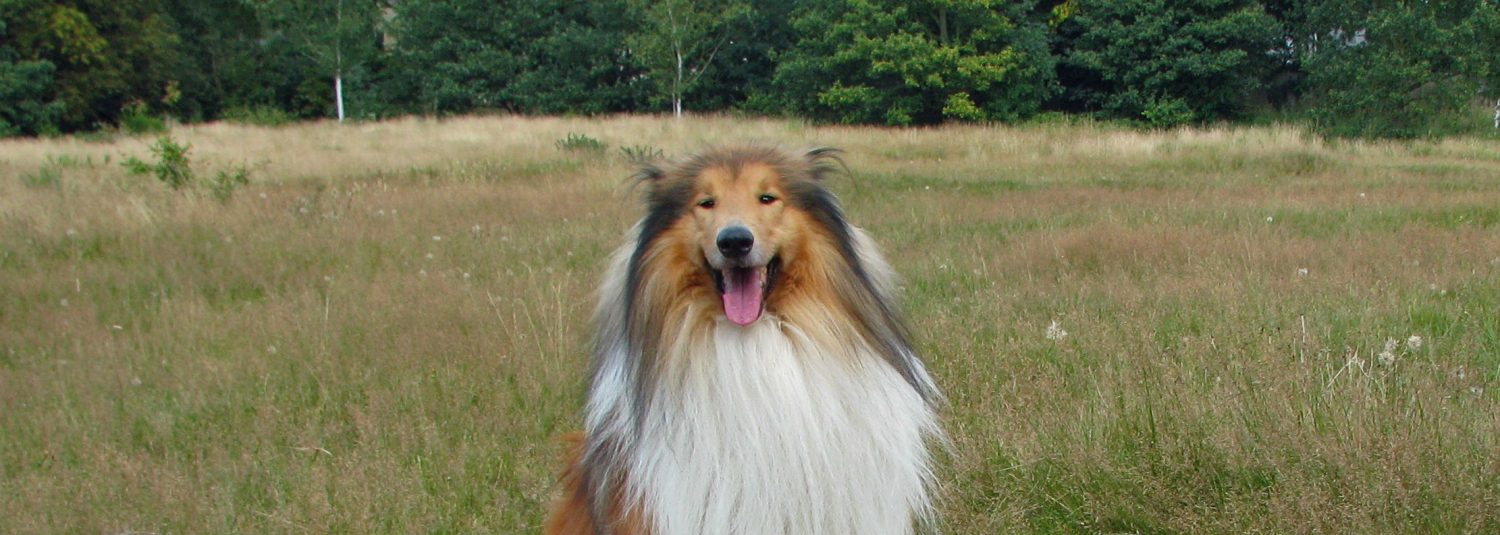My dog has hot spots and scaliness but medication and prescribing a hypoallergenic diet doesn’t seem to resolve the skin condition. What should my next steps be to get this treated?
Original Question: I have an 8 ½-year-old Rough Collie named Gordie. He has been very healthy up until about a year ago. While at the groomers they noticed he had a skin condition; small hot spots along his back in the rear area and under his tail. He lost some of his fur because of it. Blood work and a culture was grown. He was put on Zeniquin 100mg in February of 2017. We continued with this for three months but the skin problem continued. It cleared slightly but was very scaly. They felt his blood work was showing an underlying thyroid problem and he was taken off the antibiotic and put on Levothyroxine 0.6mg twice daily. This seemed to improve the skin at first and then it got worse. When weighed in November he had lost 10 pounds in a month. I’m assuming it’s the thyroid pills but there were no other symptoms with this such as no loss of appetite. The vet took him off the thyroid medication and he is gradually gaining his weight back, 4 pounds this month. At the same time the vet put him on a special food for skin problems. He has just come up to 4 weeks using this food. While at the groomers last week the vet checked his skin and said no improvement and I suggested having him see a dermatologist. I would like a second opinion before I put him through all the testing and everything they will do. Not to mention my husband and I are retired so the cost would be well above our budget. Should I leave him on this special food and see if it helps? I don’t feel he has been using it long enough to make a decision as to whether or not it is working. Have you had any experience with this type of skin issue? Here’s a little bit more background. We travel to Florida with Gordie two or three times a year but we are not close to water and he does not swim in rivers or lakes. I guess there would be different pollen in the air. Could this be a factor? We have been traveling with him for close to six years. The skin was noticed just over a year ago. Gordie is 74 pounds now. He was 80 pounds before his weight loss. It sounds heavy but he did not appear heavy. He is a large dog for his breed. Also I’m sure he is itchy but doesn’t often let on that he is. He will occasionally roll outside to scratch his back. You might see that happen twice every few months. Looking forward to your reply. - Lynda
 Apr 24, 2018
Apr 24, 2018
Hi Lynda,
Thanks for your question.
The first issue that interests me is that you mention he had a culture and was put on Zeniquin, but you don’t mention what bacteria was grown. It makes me wonder whether a skin ‘culture and sensitivity’ was actually performed. It is not commonly done by most veterinarians but can be a vital test in this particular case. I would recommend that you confirm that this test was performed and review the results. This test should be repeated at the end of therapy to confirm that the infectious agent is actually gone. Zeniquin is not commonly used so I fear it may have been a resistant bacteria with a narrow range of sensitivity to various antibiotics. In many cases, a daily shampoo is necessary to get a resistant infection under control. I would first look into these issues.
In addition, I would recommend that a ‘skin scraping’ be performed to see if there are any other infectious agents present, such as a parasite or yeast. This would necessitate a different treatment regime if it returned positive.
I don’t support a diet change until thorough testing is performed. The diet is an attempt to reduce a food allergy, but this is not likely since it is a localized area of reaction. Most allergies are generalized over areas and not so focal, but it doesn’t mean it can’t be an allergy. I just wouldn’t make that diagnosis until I ruled the other causes first.
As a last resort for diagnosis, I would consider a skin biopsy, but my suspicion is that you will find the diagnosis with what I have already recommended.
I hope this helps. Good luck.
Dr. Clayton Greenway
Disclaimer: healthcareforpets.com and its team of veterinarians and clinicians do not endorse any products, services, or recommended advice. All advice presented by our veterinarians, clinicians, tools, resources, etc is not meant to replace a regular physical exam and consultation with your primary veterinarian or other clinicians. We always encourage you to seek medical advice from your regular veterinarian.

